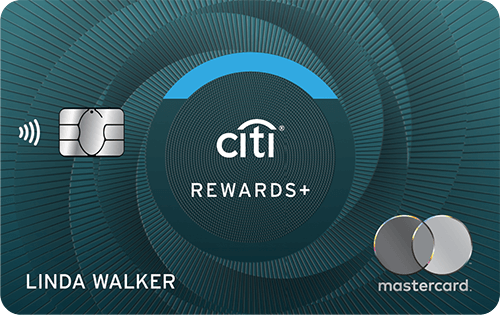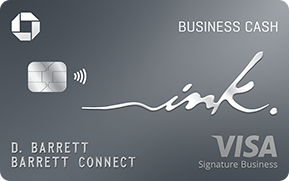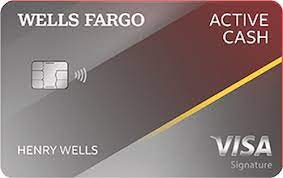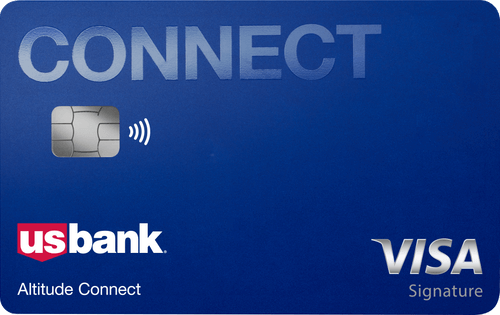While no one likes writing a check to the government, using the best credit card for paying taxes can help ease the pain.
It’s tax season again, and if you owe money to the IRS this year, you may be looking for the smartest way to pay your tax bill. While no one likes writing a check to the government, using the right credit card for paying taxes can help ease the pain. The best credit cards for taxes offer valuable rewards and benefits that essentially let you profit while fulfilling your civic duty.

In this comprehensive guide, we’ll cover everything you need to know about paying taxes with a credit card in 2024. You’ll learn:
- The pros and cons of putting your tax bill on plastic
- How to pay the IRS with a credit card
- The 5 best credit cards for paying taxes this tax season
- Strategies to maximize rewards and offset fees
- Answers to frequently asked questions about paying taxes with credit
The Benefits of Paying Taxes With a Credit Card
Typically, whenever you use a credit card you incur fees in order to collect rewards. Paying your taxes is no exception – credit card processors charge convenience fees ranging from 1.87% to 2.35% on IRS payments. However, when timed right and executed responsibly, paying taxes with a card can yield significant rewards that outweigh the fees.
Here are the main benefits of paying taxes with a credit card:
- Earn rewards: Most rewards cards offer 1-5% back in cash back or travel points. If your tax bill is $5,000, that could mean $50 to $250 back in rewards.
- Utilize sign-up bonuses: Some cards offer huge bonuses for hitting minimum spend requirements – often $500 to $800 in value.
- Enjoy 0% APR financing: If money is tight, 0% intro APR cards allow you to finance taxes interest-free for up to 21 months.
- Meet minimum spend: High tax bills make it easy to meet minimum spend requirements for SUBs.
- Improve credit: Responsibly handling a large expense demonstrates fiscal discipline to credit bureaus.
As long as you pay your balance off in full, having a large tax bill can present a lucrative credit card rewards opportunity.
10 Best Credit Cards For Entertainment Spending in January 2024
How to Pay Taxes With a Credit Card
Here is a step-by-step overview of the process to pay tax with credit card:
- Determine if you qualify – You must owe at least $100 in taxes to pay with a card. If you’re getting a refund, unfortunately, you cannot charge taxes to your credit card.
- Select a credit card processor – The IRS works with 3 external processors to facilitate credit card tax payments: PayUSATax, Pay1040, and Official Payments. These processors charge around a 2% fee.
- Choose the best credit card for taxes – Pick a card that aligns with your financial goals from our list below of top recommendations.
- Make sure your card issuer allows tax payments – Some issuers reject charges made to pay federal taxes. Call ahead to confirm your card allows it.
- Submit payment – Connect your selected card to the IRS through your chosen processor. The fee gets added during checkout.
It’s quite straightforward to pay taxes with a credit card. As long as you choose the right card and issuer, you can earn lucrative rewards that offset the fees.
The 5 Best Credit Cards for Paying Taxes in 2024
Based on the latest credit card offerings relevant to tax bills, we recommend the following 5 cards as the best for paying taxes this year:
1. Wells Fargo Autograph Card
The Wells Fargo Autograph card offers a strong 3x points bonus category on tax payments, making it a top choice this tax season. You’ll earn rewards at an accelerated pace while checking off your IRS bill.

Key Details:
- 3x points on tax payments (one of the highest bonuses available)
- $300 cash bonus after $1,500 spend in 3 months (essentially offsets the tax payment fee)
- Up to 21 months 0% APR for finance flexibility
With rich rewards and a generous welcome offer, the Wells Fargo Autograph Card lets you profit on your taxes.
2. Citi Rewards+ Card
While it only earns 2x points on tax payments, the Citi Rewards+ card makes the list by permanently boosting all your rewards. 10% of your redeemed points get rounded up and added back to your balance each billing cycle.

Key Details:
- 2x points on tax payments
- 10% points rebate when redeeming rewards
- 15 month 0% intro APR
- No annual fee
The 10% rebate on redemptions brings the effective earn rate on tax payments up to 2.2x points – among the highest durations available.
3. Chase Ink Business Cash Credit Card
With a rich welcome bonus and no annual fee, the Ink Business Cash from Chase is a great option if you file taxes for a small business or side gig. The 5% cash back on the first $25,000 in combined spending each account anniversary year can add up fast with a large tax payment.

Key Details:
- 5% cash back on the first $25,000 in annual card spending (including tax payments)
- $750 cash bonus after $7,500 spending in 3 months
- 0% interest for 15 months from account opening
With the potential to earn over $100 cash back on a $5,000 tax payment, the Ink Business Cash is a smart choice for small business owners.
4. Wells Fargo Active Cash Card
While it doesn’t offer bonus earn rates on taxes, the Wells Fargo Active Cash Card makes paying the IRS easy with 2% flat-rate cash rewards on every purchase. The $200 cash SUB is fairly easy to earn as well.

Key Details:
- Unlimited 2% cash rewards on every purchase (no bonus categories to track)
- $200 cash bonus after $1,000 spend in 3 months
- Up to 21 months 0% intro APR
The straightforward earning structure and valuable welcome bonus give the Wells Fargo Active Cash appeal for tax season spending.
5. U.S. Bank Altitude Connect Visa Signature Card
Last but not least, the U.S. Bank Altitude Connect offers 4x points on travel and at gas stations, making it a handy card for road trippers. Tax payments qualify for 1x points, and it has a $500 SUB.

Key Details:
- 4x points on travel and gas stations
- 1x points per dollar on tax payments
- 50,000 bonus points after $2,000 spend in 120 days
- $500 value SUB when redeemed for airfare
While basic for IRS payments, the Altitude Connect offers stellar bonus categories for common purchases.
Strategies to Maximize Rewards and Offset Fees
When leveraged strategically, paying taxes with a credit card can unlock tremendous value. Here are some tips to maximize rewards and offset processing fees:
- Time applications carefully – Apply for a new card with a hefty sign-up bonus in advance so you can earn it while hitting your tax bill minimum spend requirement.
- Dedicate big tax bills to a new card – Large payments help you meet spending requirements rapidly to qualify for bonuses.
- Redeem points for maximum value – Offset fees by redeeming points for high value awards like first class flights instead of cash back.
- Pay in January – Put tax bills on cards that offer anniversary bonus categories to double dip each year.
Essentially, opening the right card in advance and redeeming strategically leads to a win-win scenario where you profit on tax payments.
Frequently Asked Questions about paying taxes with credit cards
Is there a fee to pay taxes with a credit card?
Yes, the IRS works with third-party processors to facilitate credit card tax payments. These processors typically charge around a 1.87% to 2.35% “convenience fee” to cover their costs. The exact fee depends on which processor you use. However, when timed strategically, the rewards and perks from paying with a credit card can offset this fee.
Is it worth to pay taxes using credit card for reward points?
Paying taxes with a credit card to earn rewards can certainly be worth it if approached thoughtfully. You need to have a card that offers robust rewards on large purchases and preferably also a generous sign-up bonus. For example, if your tax bill is $5,000, a 5% cash back card would net you $250 back which more than offsets the 2% processing fee. Pair that with a $500 sign-up bonus and you could come out well ahead. As always, only go this route if you will pay off your balance in full.
Can I split my payment between multiple cards?
Unfortunately, the IRS payment processors do not allow you to divide a single tax payment across multiple credit cards. You need to use one card for the full amount you wish to put on plastic. However, if you are making quarterly estimated income tax payments, you could utilize different cards for each quarterly payment.
Does TurboTax allow you to pay taxes with credit card?
Yes, TurboTax does give you the option to pay your federal and state tax bill with a credit card. When you get to the payment section during filing, you will see the choice to pay by card through their partner processor. Note that TurboTax charges a convenience fee around 2.49% when using this option, which is slightly higher than going directly through the IRS.
How can I pay my U.S. taxes with a foreign credit card?
If you need to pay U.S. taxes and only have a foreign credit card, you have a couple options. First, you can check if your foreign card allows IRS tax payments – call the issuer to confirm. If not, services like Payoneer allow you to obtain a U.S. virtual credit card connected to your foreign bank account. You would load funds to your virtual card, then use the details to pay your IRS bill through one of the approved processors. This allows those based overseas to pay Uncle Sam with plastic!

